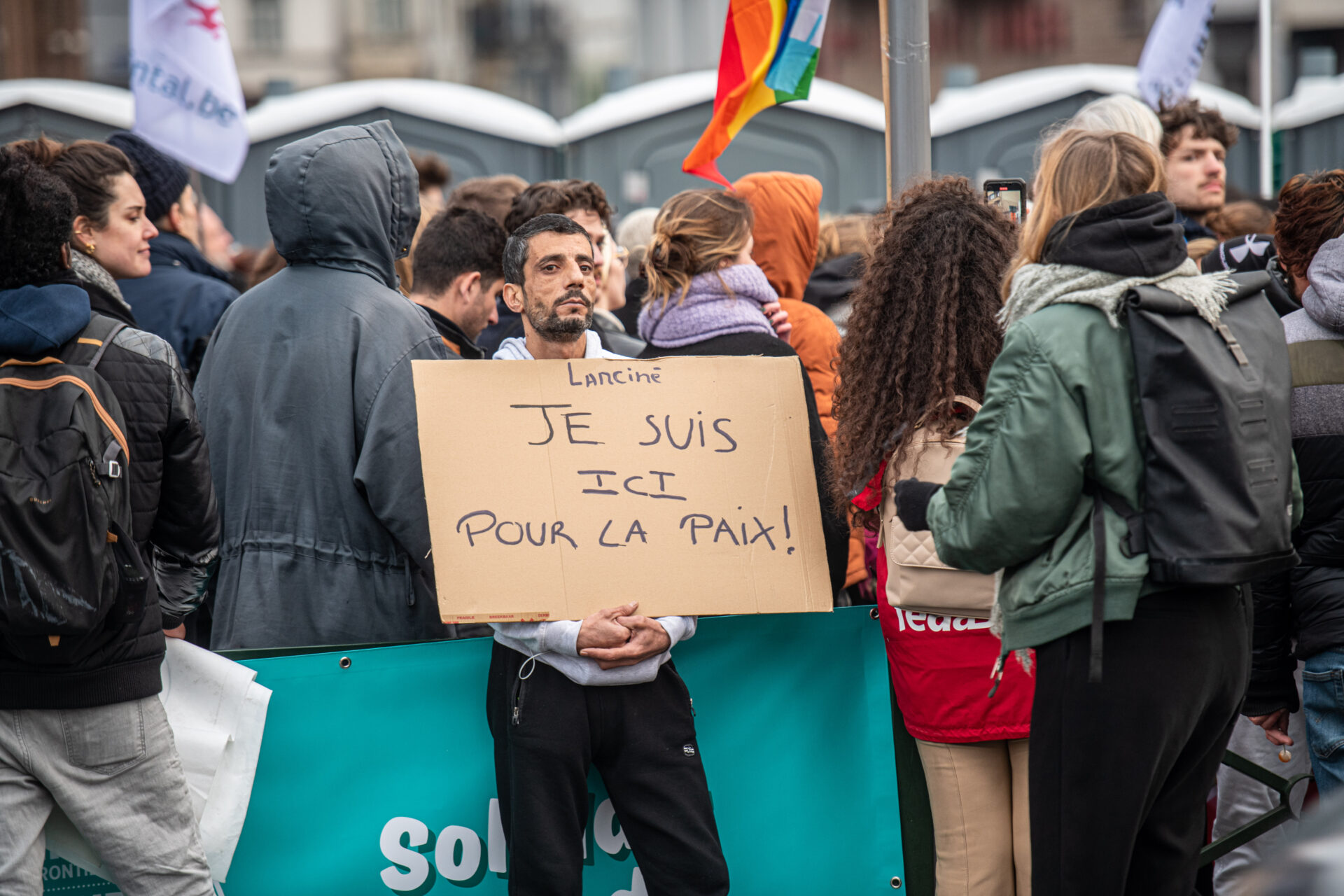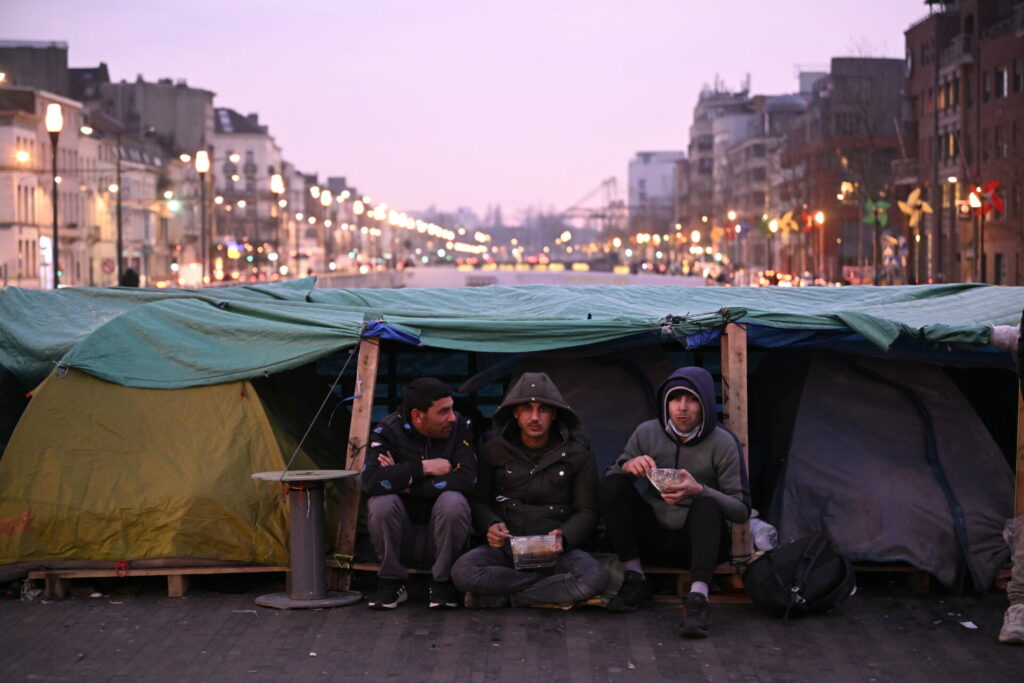Aid organisations in Belgium have once again rung the alarm bell as the number of asylum seekers without shelter is not decreasing – risking a repeat of last year's winter.
Belgium's reception crisis has since October 2021 seen applicants for international protection being denied shelter during their procedure, despite being entitled to it. The situation has been presented by the state as one that is unsolvable, despite civil society organisations repeatedly suggesting solutions, who have called out the lack of political will.
Almost 28 months since the first asylum seekers were made to sleep rough, seven refugee and aid organisations working closely with these people, including Vluchtelingenwerk Vlaanderen and Médecins Sans Frontières (MSF), collected data to draw a picture of the situation on the ground.
"Systematic refusals of reception have now become an embedded phenomenon in the system," the report read. "This is not an unmanageable 'crisis' but a reflection of the political inability to employ all available solutions."
This follows an earlier report in May 2023, in which they noted that the condition in which many asylum seekers find themselves here would raise eyebrows in most European countries, but in Belgium has been normalised. The same organisations are arguing that the situation has only worsened since then.
Drop in the ocean
The latest report shows that in early October, more than 2,600 people were on the waiting list for a place in Fedasil's shelter network. The Fedasil network of 34,851 places accommodated 32,733 people on 1 November, an occupancy rate of 94%.
Turned away from the official network, asylum seekers turn to the Humanitarian Hub, where asylum seekers can go for legal, sanitary, medical or nutritional needs, or the first-line medical service Refugee Medical Point (RMP) which provides accessible basic health care.
Both organisations noted that the majority of people using the service are still in the middle of their asylum procedure, but are not provided with shelter.
Due to the saturation of the shelter network, the Federal Government decided to finance 1,500 places in the Brussels homeless centres where asylum seekers for whom there is no immediate room in the shelter network can sleep. Another 500 places were added on Friday at the initiative of State Secretary for Asylum and Migration Nicole de Moor.

An asylum seeker holds a sign that reads "I am here for peace." Credit: Belga / Jonas Roosens
However, the organisations argued that this is a drop in the ocean. Firstly, they found that few people who turn to civil society organisations were able to stay in Brussels emergency shelters.
They also stressed that, according to the latest report, there are 7,134 homeless people in Brussels, meaning the unresolved reception crisis is adding further pressure to organisations tackling the homelessness crisis.
The current situation is resulting in "disastrous consequences" for the mental well-being of these asylum seekers, the organisations say, many of whom have already in the past been victims of acts of violence or torture.
The seven organisations are therefore urging the government to stop formalising refusals to provide shelter to avoid a winter like last year, when the system was even more saturated and families and children were left on the streets.
They argued that the federal phase of the national contingency plan should be activated, "so that Defence and Civil Protection personnel can be called upon to set up temporary emergency shelters." They also once again called for a mandatory distribution plan to distribute local shelter initiatives and financial support among municipalities.
"It is abundantly clear that we are not dealing with an unpredictable and unmanageable 'crisis' here; rather, it is a reflection of political inability to employ all available solutions," the organisations concluded.

